14. Chinatown (Roman Polanski, 1974)
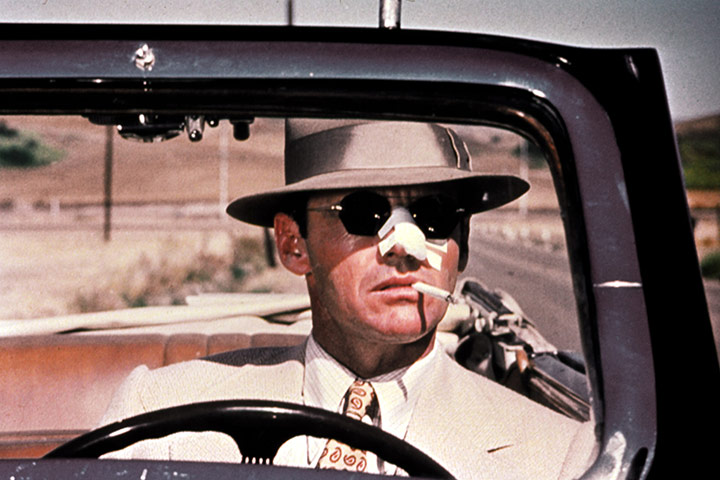
In Roman Polanski’s disheartening drama, detective Jake Gittes, played by Jack Nicholson, is faced with one of the most disgruntling and frustrating feelings we can experience: impotence. He is hired by a woman for one simple job, to find out if her husband is cheating on her, but everything takes an unexpected turn and he gets caught in the middle of a disturbing mesh of moral corruption and destructive deviations.
“Chinatown” is one of the best detective films ever made, exploiting and improving every defining aspect of the noir genre. In its iconic ending, Noah Cross, a rich and twisted man who controls the water reserves of LA, played by legendary director John Huston, manages to flee a crime scene with his daughter/granddaughter. Gittes tries to catch him, but is stopped by another detective, who mutters the last line of dialogue in the film: “Forget it Jake, it’s Chinatown”.
What can one do against the derangement we live in, against the syndrome of our time? Nothing is sacred anymore, except money, which can turn you into god himself. Jake Gittes is confronted with the fact that as long as you are rich there are no moral or social laws to abide to; everything is permitted, independently of who you hurt in the process of doing your will. Such is the reality we live in everyday, and those with power will always seem to us like obscure figures to us.
15. Güeros (Alonso Ruizpalacios, 2014)
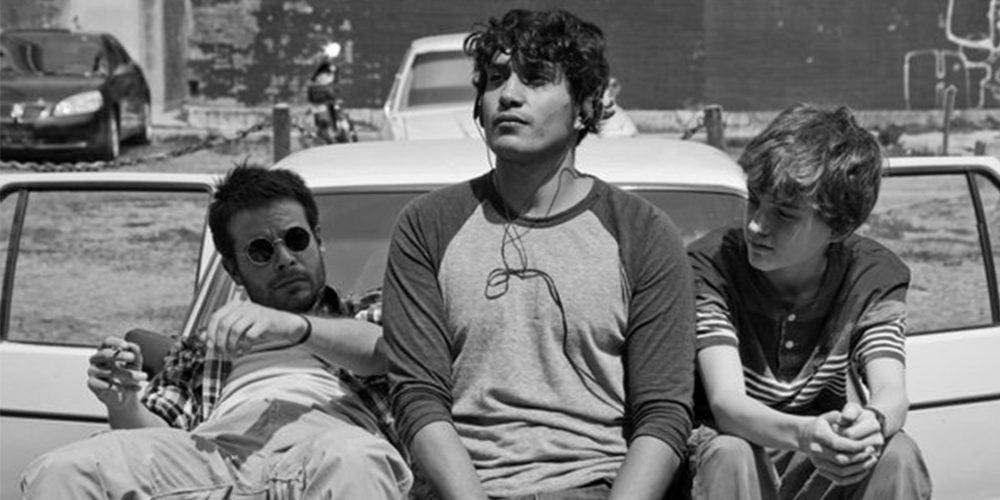
In Alonso Ruizpalacios’s wonderful debut “Güeros”, we are taken on a road trip throughout México City. We go to UNAM’s University City, bottom-class barrios, the zoo and other parts of the urban landscape while we accompany Sombra, Tomás, Santos and Ana on their search for Epigmenio Cruz, a long-forgotten rock musician.
The university is on strike and they are chased out of their apartment by the neighbor from who they’ve been stealing electricity, so they drive around México City with no defined purpose. Themes like poetry, social and political commentary, anxiety and love spawn during the journey.
The beautiful photography, the light-hearted plot and the charismatic interpretation of the actors make “Güeros” an easily enjoyable film, while it also depicts the reality that is lived in practically every mayor Latin American city: social disconformity, people dealing with poverty in any way they can, and the lost youth looking for something that they don’t know (represented by Sombra and Santos, who are ‘in strike of the strike’).
16. The Eclipse (Michelangelo Antonioni, 1962)
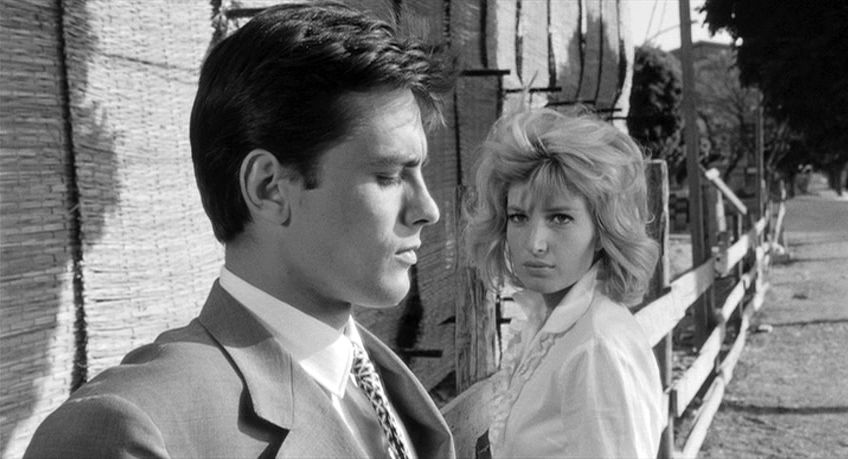
A Part of Antonioni’s existential trilogy, “The Eclipse” is a deep nihilist film concerning alienation and the loss of meaning. It’s the love story of Vittoria, played by Monica Vitti, and Piero, played by Alain Delon. After Vittoria breaks up with her fiancée Riccardo, she starts a relationship with Piero, her mother’s broker.
Antonioni’s masterpiece focuses on the sickness of feelings, on the inability to form enduring relationships in the modern age. The final minutes of the film are the eclipse the title refers to; there are no characters anymore, and we see the locations of the film, but they are now empty. The film has forgotten about the characters and all that human drama we just saw fades away into oblivion, into the abstract scenes of city. It is the eclipse of human feelings and emotions.
17. Brazil (Terry Gilliam, 1985)
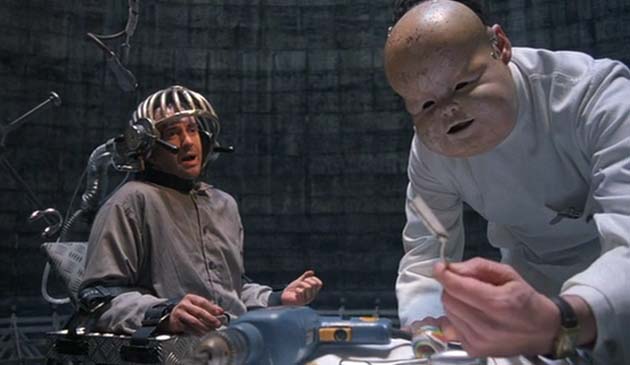
While a sci-fi film by definition, Terry Gilliam’s “Brazil” in its hyperactive imaginarium gives an outlook on displeasing aspects of the daily life in cities, such as Kafkaesque bureauctratism, soul-crushing marketing, upper-class absurd frivolity, and nightmarish working conditions.
The film stars Jonathan Pryce, who plays Sam Lowry, an oppressed bureaucrat who only allows himself to be really free in his dreams, where he is some sort of angelic superhero. “Brazil” has a complex narrative and it’s difficult to describe it in just a few words, but we can read in it a lucid critique to the absurdity of the state of things that our sometimes Orwellian governments seem to lead to. The only escape is in our dreams; that’s where our emancipation lies at, where our individuality remains untouched.
The city of “Brazil” is a nightmarish labyrinth that, in the spirit of the film, communicates a sense of oppression and vigilance, and the buildings are all colorless, devoid of any kind of human warmth. There is no sun shining, but who need the sun when you work in an office, right?
18. Rear Window (Alfred Hitchcock, 1954)
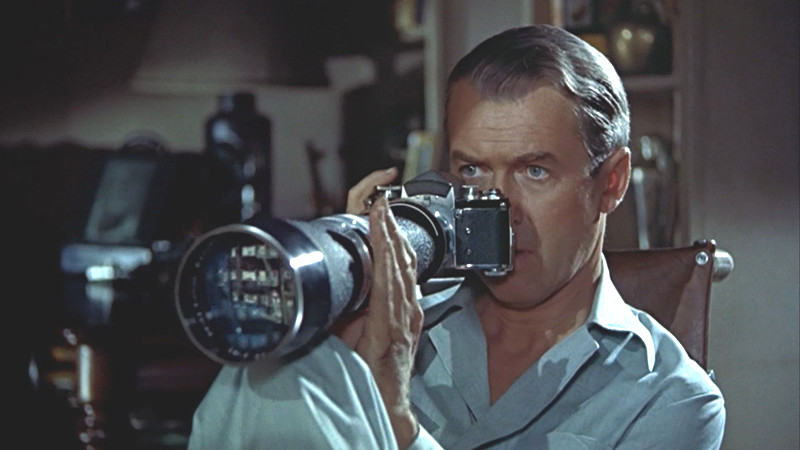
We are curious by nature; it is our curiosity that has helped us to understand the reality we live in, and it has turned us into the most powerful creatures on the face of earth. Nevertheless, this curiosity can take many forms and manifestations. James Stewart plays Jeff, an injured photographer who has to stay inside his apartment while his broken leg heals.
Voyeurism, one of the darkest and most satisfying of human pleasures (and one every film lover is familiarized with), is the main device of the plot, as Jeff starts to use his photographic equipment to spy on his neighbors. Why do we like to watch others while they are unaware of our gaze?
The film does not try to answer that question, but while living in large cities we cannot help but wonder who all those strangers are living around us, living lives that we cannot begin to imagine, as if in the suspense of looking through the keyhole we would be able to discover something about ourselves.
19. El Castillo de la Pureza (Arturo Ripstein, 1973)
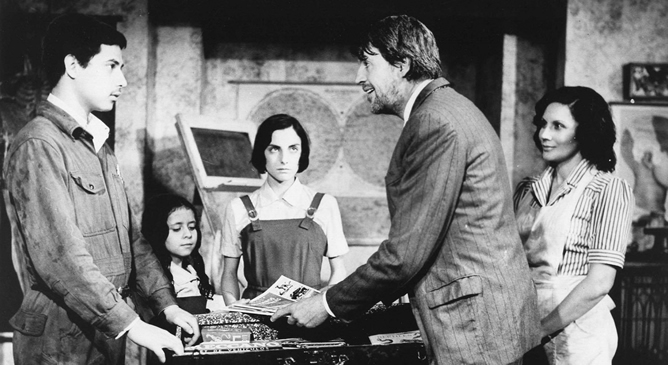
As we can see, in cities we are exposed to the impurity of an impure world. This generates all sorts of reactions; some are absorbed by the dark impulses and desires, but others try to fight them, and that is what we see in Ripstein’s classic “El Castillo de la Pureza”. Set in México City, the film tells us the story of Gabriel Lima, a man who keeps his family away from the illnesses of society by secluding them in an old colonial house.
Of course, Gabriel Lima is not the immaculate saint he thinks he is. In the film he proves to be an hypocrite and manipulative character, and his desires to keep his family inside the house are just a manifestation of his narcissism. The castle of purity crumbles down as we see that we cannot escape our desires, and an incestuous relationship spawns between Utopia (Utopy) and Porvenir (Future), the son and daughter of Lima. The police eventually finds out about the situation and the family is set free.
Where is the root of evil? Is it something we carry within us? Or is it in our context? Are we the ones to blame for all the chaos we see every day? The dichotomy between good and evil, right and wrong, allowed and forbidden, has been a very common subject in art and philosophy, and this film (which was co-written by José Emilio Pacheco, one of the greatest Mexican writers) shows us what happens when we think we’ve got all the answers and we are able to see the impurity and the corruption in the world around us but fail to realize we are just as sick as those we despise.
20. Her (Spike Jonze, 2013)
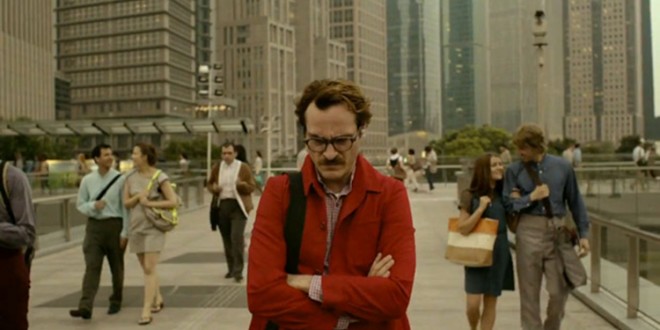
In order to comprehend the sickness of an era, you need to look closely to the symptoms, even when they do not seem to be harmful at all. Are we evading ourselves trough technology? Or are we using it to aid us into our journey of self-discovery? The integration of technological gadgets into our daily lives grows with each passing day.
In Spike Jonze’s “Her”, we witness the romance between Theodore and Samantha, his operating system. The film raises a couple of interesting questions: is it possible to love a computer? Is a computer able to love us back?
There is something almost poetic in the way LA is portrayed in the film, in the melancholy of the city lights, of the soft colors, and we see Theodore walking alone, lost in himself, in the middle of contemplation, talking only to his O.S. In the uber-technological times we live in, communication has changed, and vis-a-vis contact is no longer necessary.
With our phones we can be in touch with anyone anywhere in the world, and while that’s a great advantage, that kind of power comes with its risks. Aren’t we losing ourselves in this technological nirvana? The film implies we do; when Theodore is left by Samantha at the end of the film, only then does he rediscover human affection in his friend Amy.
Author Bio: Emilio Martínez Frausto is an Architecture student lost in Mexico City. Two of his greatest passions are literature and cinema. He is currently trying to find a way to cope with existance and to decide what he wants to do with his life. He writes poetry, short stories and film scripts.